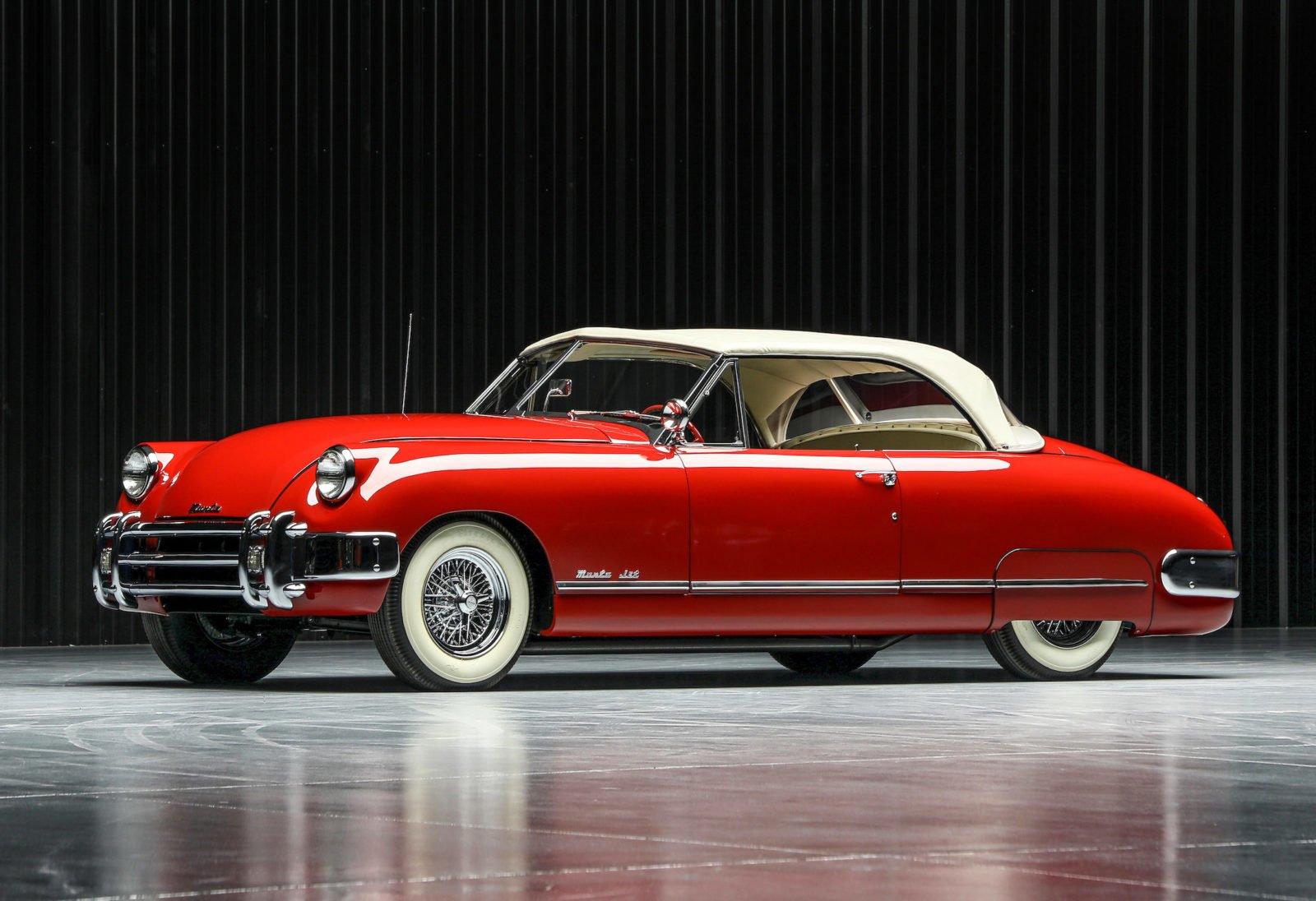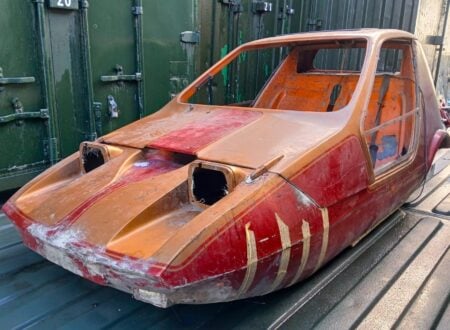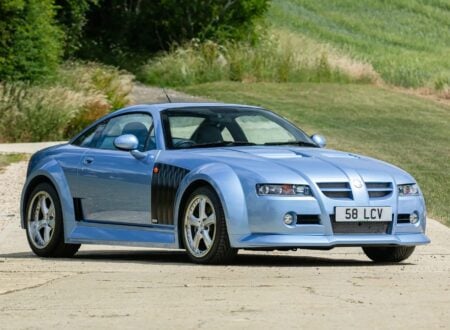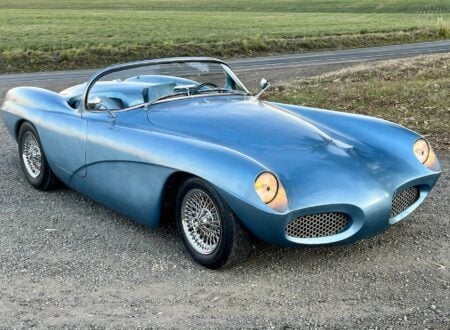When it was released in 1949 the Muntz Jet was one of the most unusual production cars in the USA during its production run. It was fast for the era, capable of 112+ mph, and when ordering you could choose options that included a liquor cabinet and an ice chest under the armrests.
The Muntz Jet was the brainchild of Earl “Madman” Muntz, a successful entrepreneur who made and lost many fortunes over the course of his life. The Jet was based on the Kurtis Sport Car (KSC), a vehicle developed by Frank Kurtis – a well-known racing car designer.
Fast Facts – The Muntz Jet
- The Muntz Jet was created by serial entrepreneur Earl “Madman” Muntz, he had bought the rights and tooling for the Kurtis Sport Car (KSC) from Frank Kurtis, then modified the car before putting it into production.
- Unlike the more sports-oriented KSC, the Jet was intended to be more of a personal luxury car. It was powered by a 160 hp American V8, it had seatbelts, a padded dashboard, an opulently appointed interior, additional options included a liquor cabinet and an ice box for cooling drinks.
- The Jet has been called the first personal luxury car, beating the Ford Thunderbird by six years. Muntz himself claimed the Thunderbird was directly inspired by the Jet.
- The Muntz Jet was built with body-on-frame construction, it had independent front suspension, a live axle rear, and hydraulic drum brakes at each wheel. Power was provided by either a Cadillac or Lincoln V8, both of which produced 160 hp.
Earl “Madman” Muntz
Earl “Madman” Muntz was indisputably one of the most interesting men in the automotive world of the mid-20th century. Muntz was an American businessman and engineer who made a name for himself selling both cars and consumer electronics from the 1930s well into the 1980s.


One of his most enduring legacies is almost certainly his quirky “Madman” television persona that he would use in advertisements, a persona that has been copied widely around the world. He also invented the concept of “Muntzing” – simplifying complex electronic devices to reduce their cost.
Muntz had started his first used car dealership at the age of 20 in Elgin, Illinois. He became a remarkable success, eventually moving his operations to California at the age of 26. He created his “Madman” character while selling used cars and became a celebrity in the process.
He had a lifelong fascination with electronics and electronic devices. He developed the simple but effective Muntz TV in 1946 and offered it for sale from 1947 onwards. It was the first TV to sell for less than $100, the cheapest model previously had retailed for $445.
Muntz would later invent the Muntz Stereo-Pak 4-track tape cartridge, the original predecessor of the Stereo 8 cartridge, better known as the 8-track.
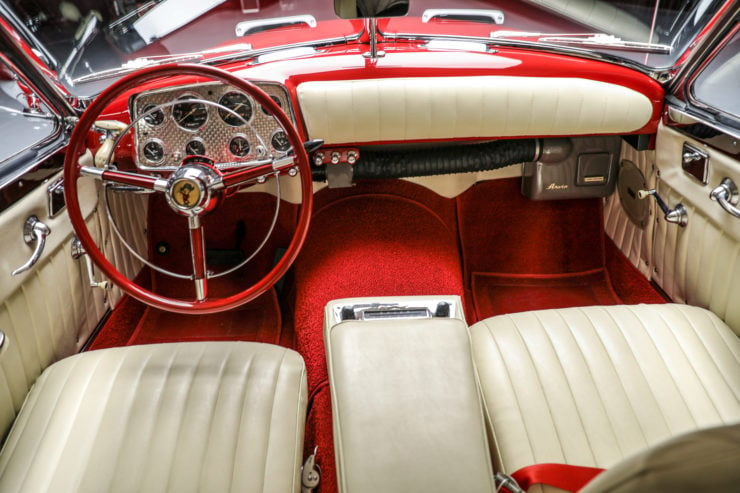

By the 1980s Muntz had become the leading retailer of cellular phones in Los Angeles, a good indication of his ability to adapt to new industries and technologies.
The Kurtis Sport Car (KSC)
Given the importance that cars had had in the life of Earl Muntz it wasn’t surprising that he harbored a dream of developing and selling his own car. He already had the funding and the advertising acumen, then in 1949 when he met Frank Kurtis and saw his unusual Kurtis Sport Car (KSC) he realized he could take it over and fulfill his dream.
The Kurtis Sport Car (KSC) had been developed after WWII, it was a high-performance two-seat sports car developed by Frank Kurtis and the team at Kurtis Kraft, a company better known for their open-wheel racing cars.
The difficulties of selling low-volume sports cars profitably had nearly financially crippled Kurtis, so when Muntz appeared offering him $200,000 for the right and tooling to the design it must have seemed too good to be true.
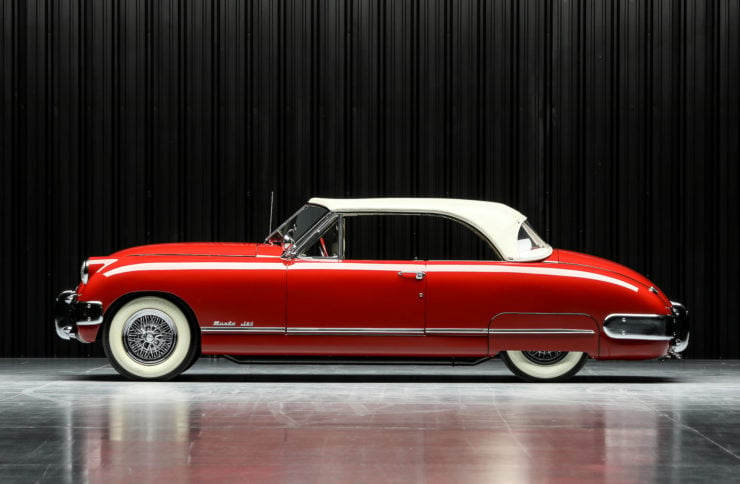

The Muntz Jet
Muntz realized that the two-seater layout of the KSC would restrict the sales potential of the car, so he lengthened the wheelbase by a few inches and added a second row of seats. Ultimately the Muntz Jet would be 400 lbs heavier than the KSC, but it was more roomy and luxurious which appealed to a certain clientele.
The first Muntz Jets were built in Glendale, California before production moved to Evanston, Illinois. The first series of cars were fitted with a 160 hp Cadillac V8, with later cars getting the Lincoln V8, also capable of 160 hp.
Power was sent to the live axle rear end via either a General Motors Hydramatic automatic transmission or a 3-speed Borg-Warner manual transmission. Front suspension was independent with A-arms and coil springs, the live axle in the rear rode on leaf springs, and the car had hydraulic drum brakes on all four corners.
The Jet was said to be capable of 112+ mph, Earl Muntz claimed the car could reach 150 mph but he was known to exaggerate a little here and there, particularly when marketing was involved.
The Jet was exceedingly costly be the standards of the day, retailing for $5,500 when you could buy a new Cadillac convertible for $3,987 or a Lincoln for $3,600.
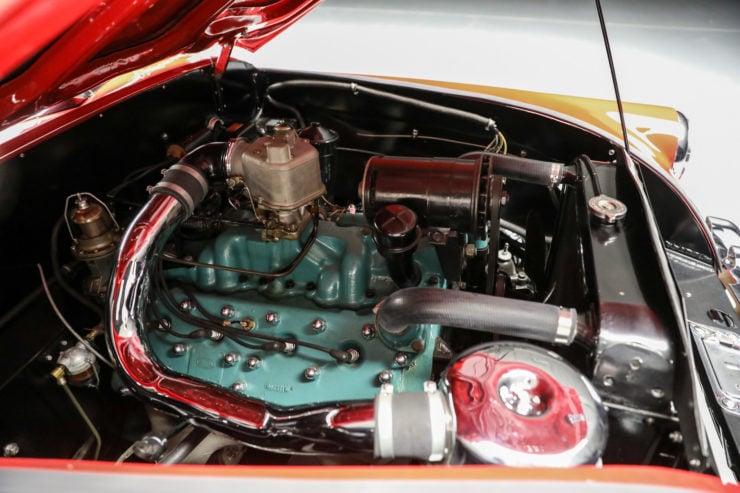

Earl Muntz realized that he was losing over $1,000 per car, as they actually cost closer to $6,500 to build. He kept the Jet in production from 1949 until 1954, though he claimed to have made over 400 of them its believed that closer to 198 were actually made, and at least 125 of them have survived to the modern day.
The 1952 Muntz Jet Shown Here
The car you see here is a 1952 Muntz Jet that was discovered in the back of a barn in New Castle, Pennsylvania. The man who discovered it wasn’t even there looking for a Jet, he had been planning to inspect a Lincoln Zephyr, but he left with all the Muntz Jet parts on a trailer after striking a deal.
The car kept its original chassis, engine, and gearbox. Many of the body panels had rusted significantly and needed a lot of work, but the car eventually came back together and was finished in the original color of Colorado Red over a Snow White vinyl interior.
The car is now due to roll across the auction block with Worldwide Auctioneers in late April in Auburn, Indiana. The car is being offered with no reserve and you can click here if you’d like to read more about it or register to bid.
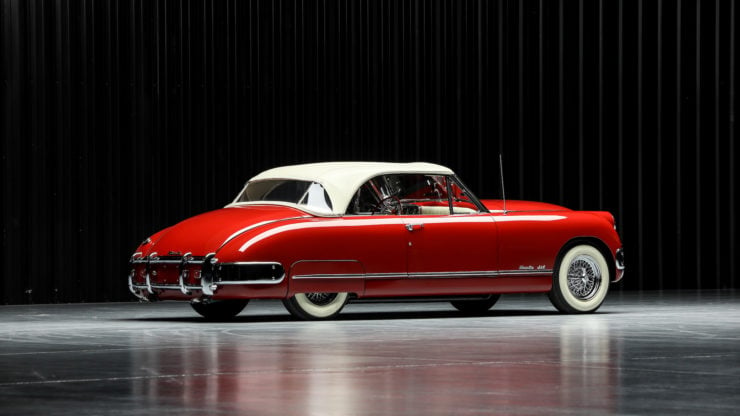
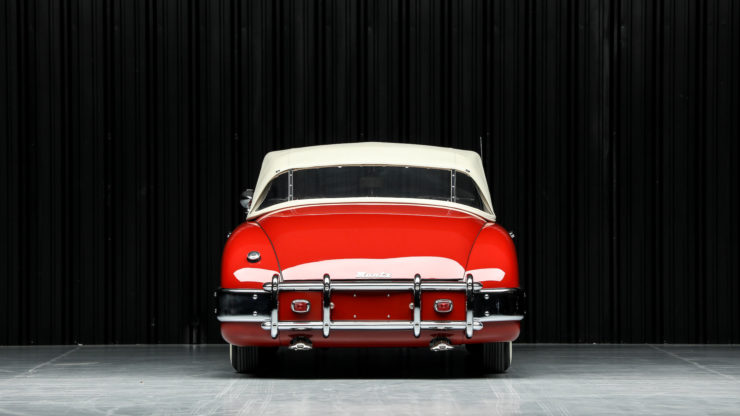
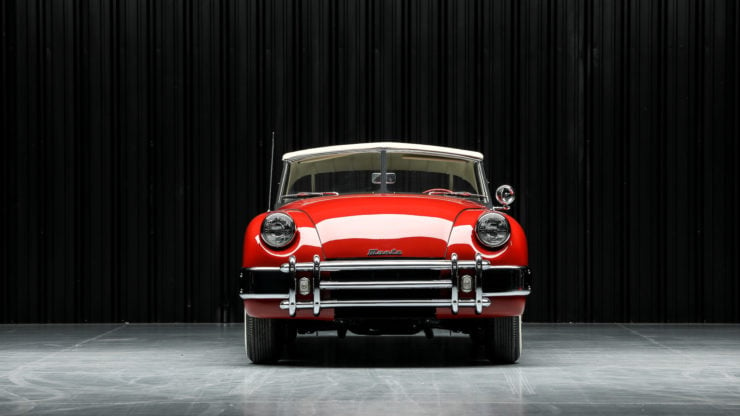
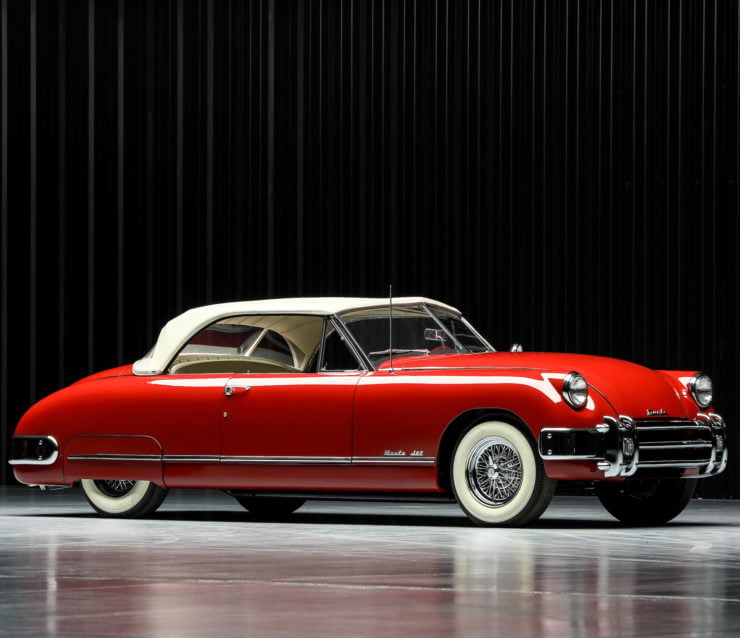
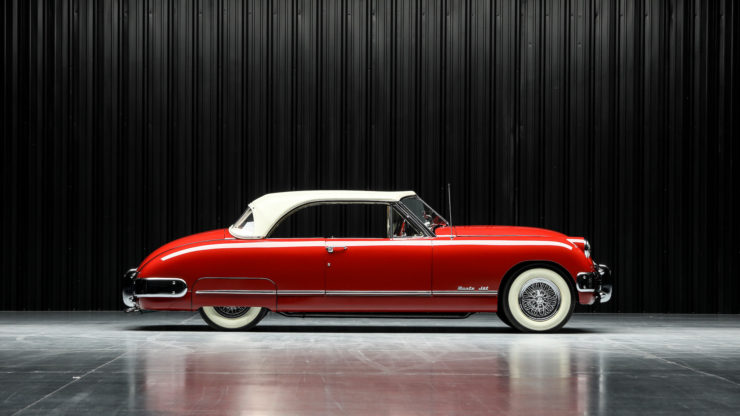
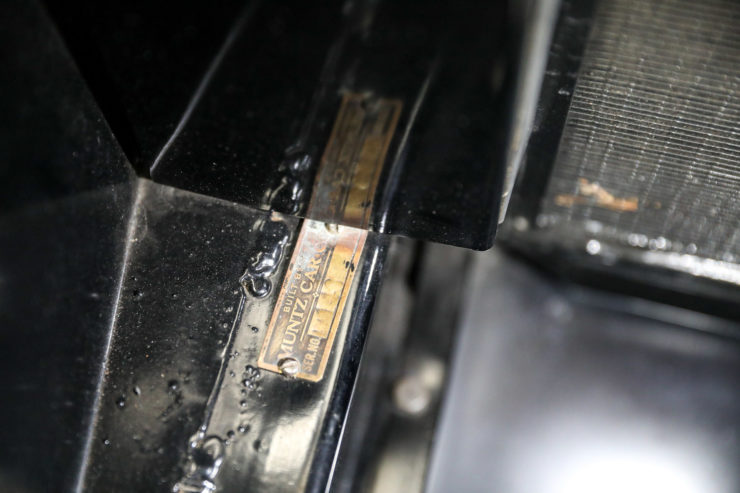
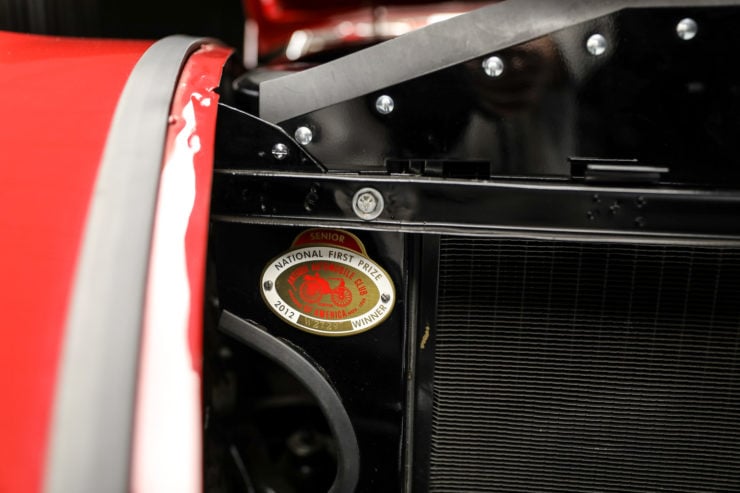
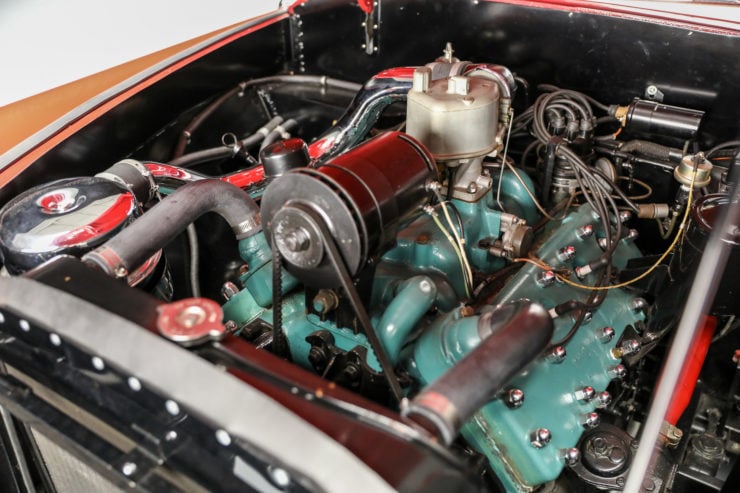
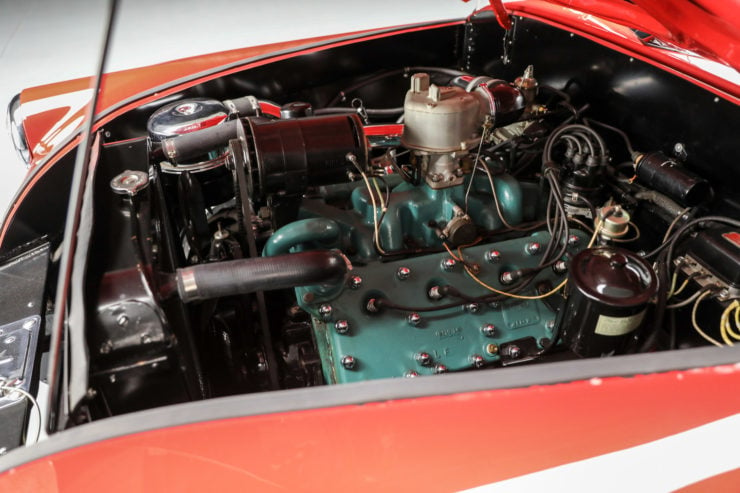
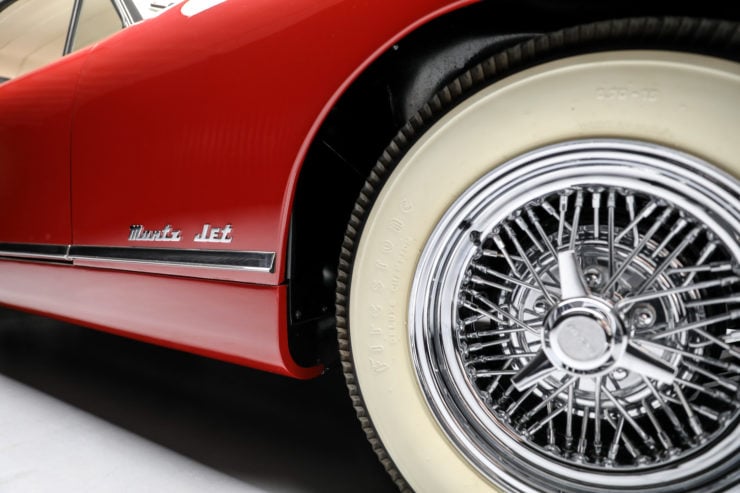
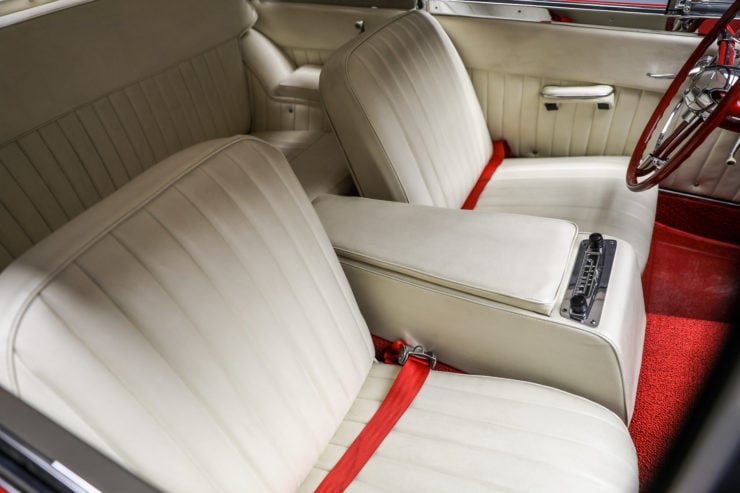
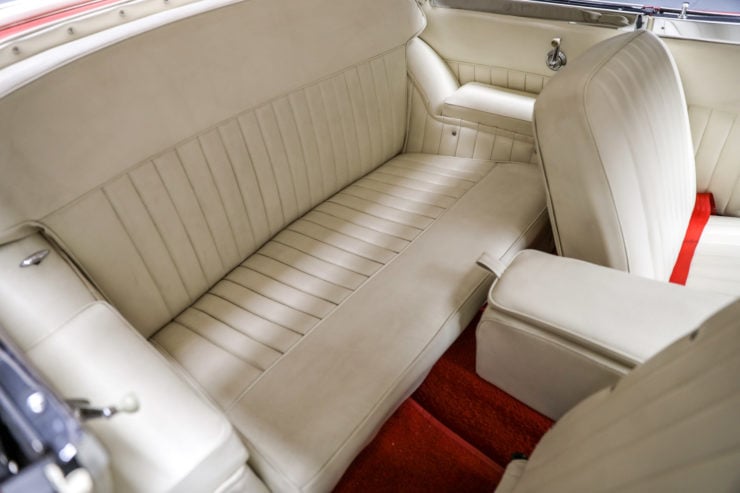
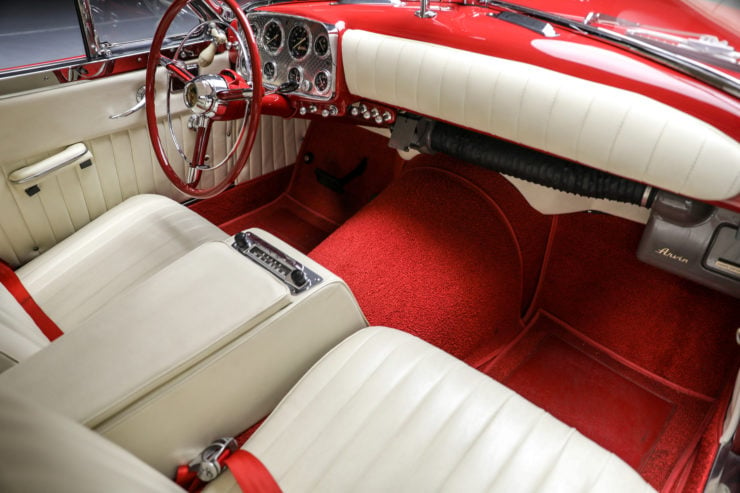
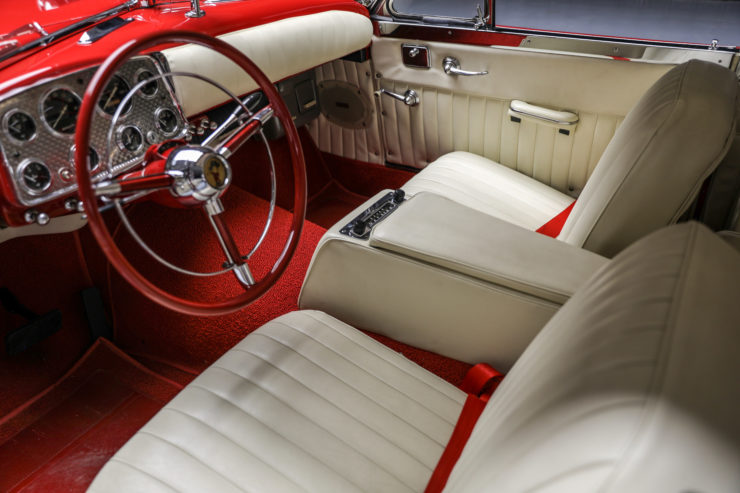
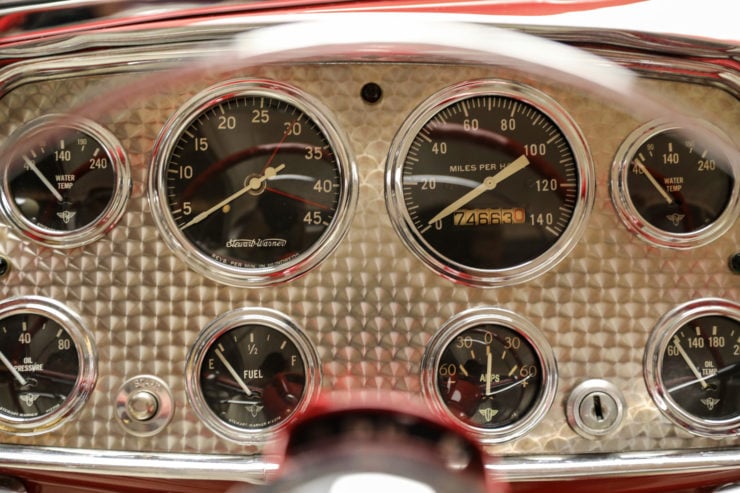
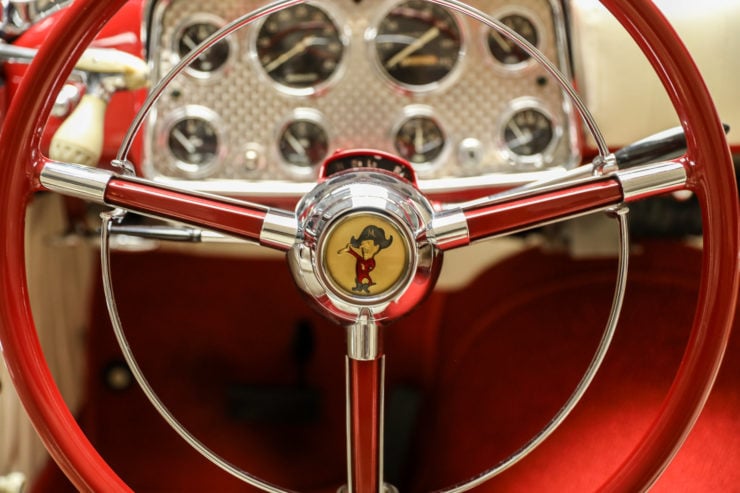
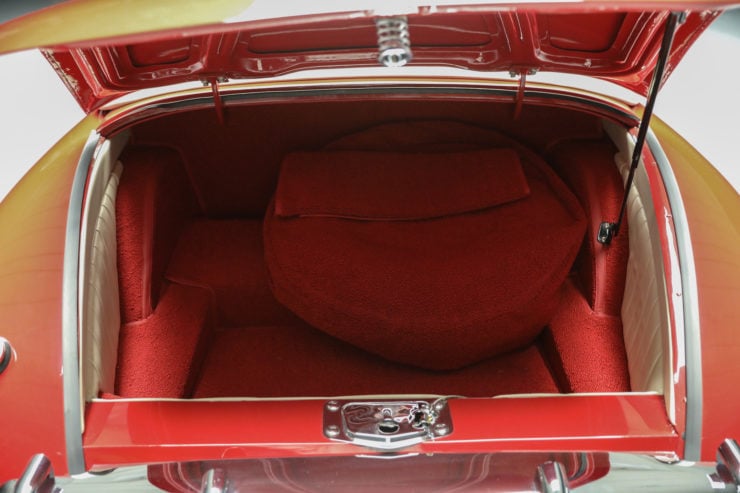
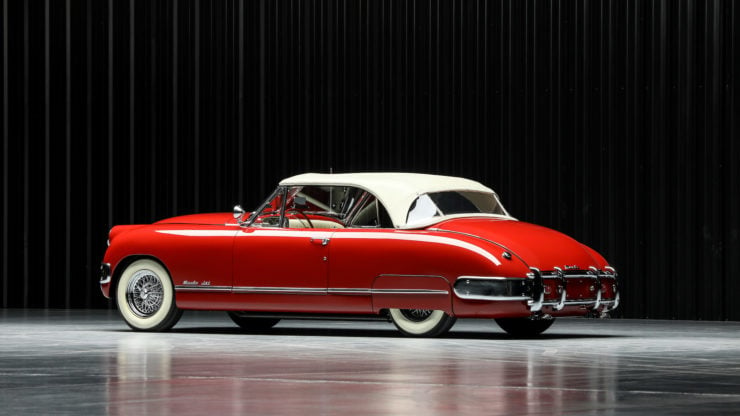
Images courtesy of Worldwide Auctioneers

